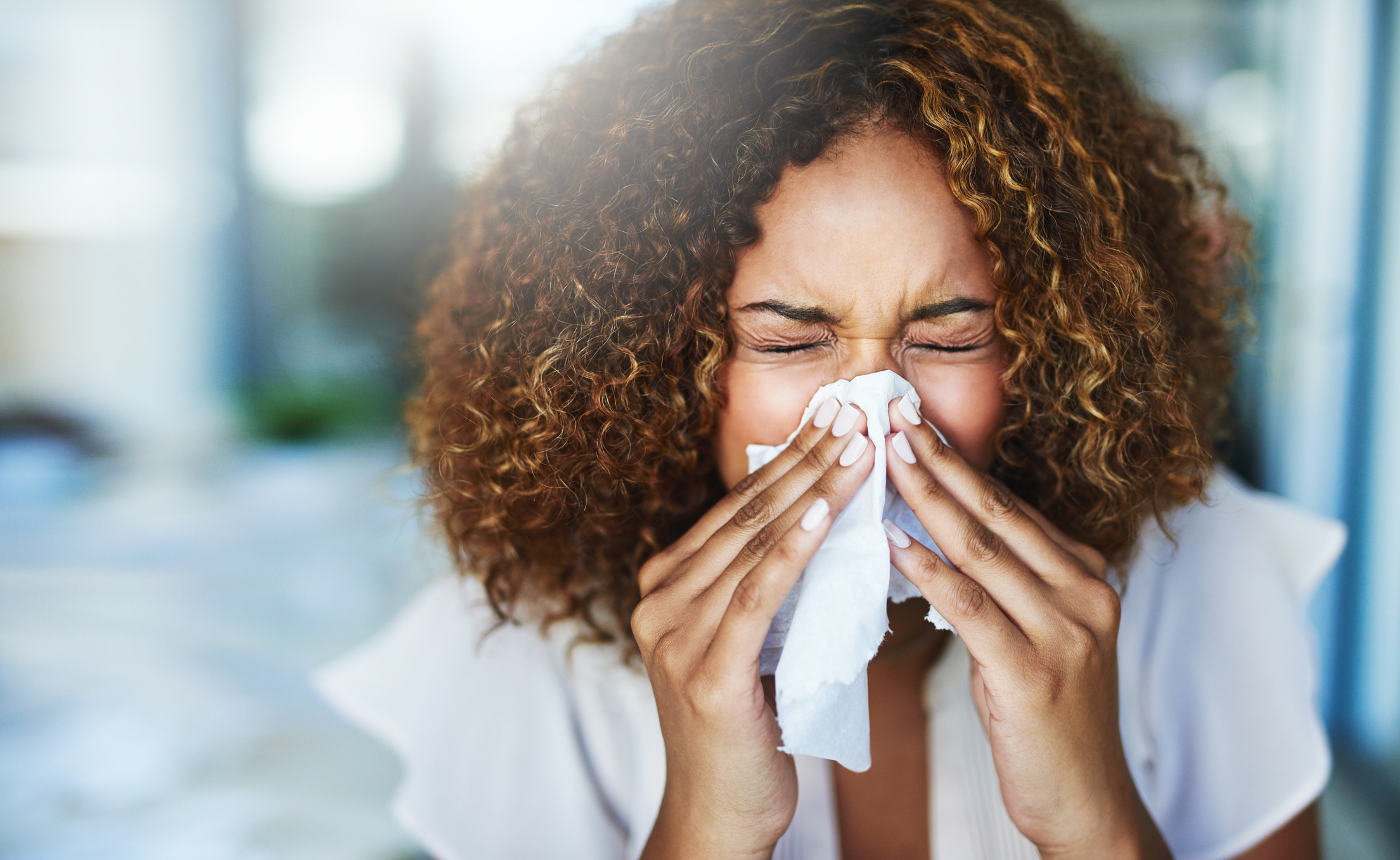What are the symptoms of sneezing?
Sneezing is a reflex action that helps clear the nasal passages of irritants. The symptoms associated with sneezing can include:
- Sudden, Forceful Expulsion of Air: A rapid and involuntary expulsion of air from the lungs through the nose and mouth.
- Tickling or Itching Sensation in the Nasal Passages: A sensation that prompts the sneeze.
- Runny Nose or Nasal Congestion: Often occurs in conjunction with sneezing, particularly if the sneezing is due to allergies or a cold.
- Watery Eyes: Sneezing can cause or be accompanied by increased tear production.
- Sneezing Spasms: Multiple sneezes in a row can occur, especially if the irritant is persistent.
- Occasional Coughing: Sneezing may sometimes be followed by coughing.
While sneezing itself is a common and generally benign symptom, it can be associated with various underlying conditions such as allergies, respiratory infections, or irritants.
What are the causes of sneezing?
Sneezing can be triggered by a variety of causes, typically related to irritation or stimulation of the nasal passages. Common causes include:
1. Allergies:
- Pollen: Seasonal allergies, or hay fever, caused by pollen from trees, grasses, or weeds.
- Dust Mites: Tiny insects found in household dust.
- Pet Dander: Allergens from animals such as cats or dogs.
- Mold: Spores from mold or mildew.
2. Respiratory Infections:
- Common Cold: Viral infections that inflame the nasal passages and sinuses.
- Flu: Influenza virus can also cause sneezing along with other flu symptoms.
3. Irritants:
- Smoke: Exposure to tobacco smoke or other environmental pollutants.
- Strong Odors: Fragrances, perfumes, or cleaning chemicals.
- Pollution: Airborne pollutants and allergens.
4. Environmental Factors:
- Dry Air: Dryness can irritate the nasal passages and trigger sneezing.
- Cold Air: Sudden exposure to cold air or temperature changes can cause sneezing.
5. Physical Stimuli:
- Bright Lights: A reflex known as the photic sneeze reflex, where bright lights trigger sneezing in some individuals.
- Dust or Particles: Inhalation of fine particles or dust can stimulate sneezing.
6. Medical Conditions:
- Sinusitis: Inflammation of the sinuses can cause sneezing.
- Nasal Polyps: Noncancerous growths in the nasal passages that may lead to sneezing.
7. Other Causes:
- Gustatory Rhinitis: Sneezing triggered by eating certain foods, especially spicy foods.
- Medications: Some medications may cause sneezing as a side effect.
Understanding the underlying cause of sneezing can help in determining the most effective management or treatment strategy.
What is the treatment for sneezing?
The treatment for sneezing depends on the underlying cause. Here are common approaches to manage and reduce sneezing:
1. Allergy Management:
- Antihistamines: Over-the-counter or prescription antihistamines can help reduce allergic reactions and sneezing.
- Nasal Corticosteroids: Prescription nasal sprays reduce inflammation and are effective for long-term allergy management.
- Avoidance: Identifying and avoiding allergens (e.g., pollen, pet dander) can help prevent sneezing.
2. Respiratory Infection Treatment:
- Rest and Hydration: Adequate rest and fluids can help the body recover from a cold or flu.
- Over-the-Counter Medications: Decongestants and expectorants can help alleviate symptoms. However, decongestants should be used with caution and according to guidelines.
- Prescription Medications: For bacterial infections, antibiotics may be prescribed, though they are not effective for viral infections.
3. Irritant Reduction:
- Avoid Irritants: Reducing exposure to smoke, strong odors, and pollutants can help prevent sneezing.
- Humidifiers: Using a humidifier can add moisture to dry air and alleviate nasal irritation.
4. Environmental Control:
- Air Purifiers: Using air purifiers can help reduce airborne allergens and irritants.
- Nasal Irrigation: Saline nasal sprays or rinses can help clear nasal passages and reduce irritation.
5. Photic Sneezing:
- Avoiding Bright Lights: Wearing sunglasses or avoiding direct exposure to bright lights may help reduce sneezing in individuals with the photic sneeze reflex.
6. Medical Consultation:
- Diagnosis and Treatment: If sneezing persists or is accompanied by other symptoms, consulting a healthcare provider is important for proper diagnosis and treatment. They can provide targeted therapies and investigate any underlying conditions.
By addressing the specific cause of sneezing, individuals can find relief and manage symptoms more effectively.

Leave a Reply
You must be logged in to post a comment.